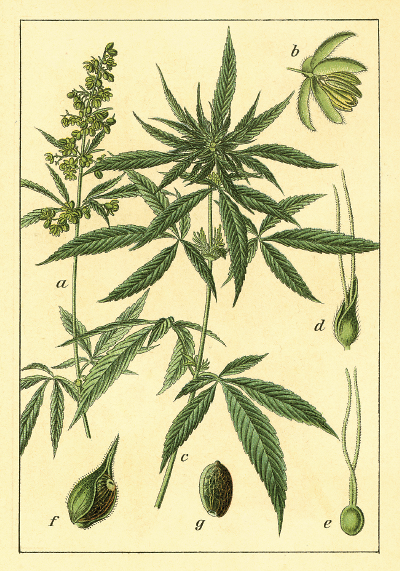Twenty-nine states and the District of Columbia have legalized medical cannabis, with more potentially on the way. As psychiatric disorders are among conditions for which cannabis might be recommended, psychiatrists throughout the country are or could soon be engaged in discussions about medicinal marijuana with their patients.
There are a few steps clinicians can take to prepare for such conversations, according to a group of experts who participated in a session on medicinal cannabis at APA’s 2017 Annual Meeting.
One of the first important facts about medicinal cannabis, noted David Gorelick, M.D., Ph.D., a professor of psychiatry at the University of Maryland, is that psychiatrists and other physicians cannot technically “prescribe” it. Cannabis is classified as a Schedule 1 controlled substance by the Federal Controlled Substances Act; the Schedule 1 category includes drugs considered to have a high potential for abuse and no currently accepted medicinal value and therefore cannot be prescribed. Instead, physicians can “recommend” or “certify” that a patient could benefit from incorporating medical cannabis into their treatment plan.
There are currently 53 medical conditions that qualify for medicinal cannabis in at least one state, but each state has its own list of acceptable conditions, explained Kevin Hill, M.D., an addiction psychiatrist at McLean Hospital in Boston. For example, posttraumatic stress disorder is considered a qualifying condition in New Jersey, but not in neighboring New York.
“There is a big difference, though, between what the laws say and what the science says,” Hill said. He highlighted the recent 2017 report from the National Academies of Science, Engineering, and Medicine on the therapeutic evidence for cannabis or cannabis-derived products as a good resource to see which conditions have some science behind therapeutic claims (
Psychiatric News, May 19, 2017).
Before recommending cannabis for a patient, John Halpern, M.D., director of the Boston Center for Addiction Treatment, said clinicians should first obtain a written statement of informed consent. He recommends that such consent forms include the following terms:
•
Patient will store medicinal cannabis in a secure lockbox.
•
Patient will not divert supply to anyone else.
•
Patient will keep a regular appointment schedule.
•
Patient will agree to submit to urine drug testing, if requested.
•
Patient will keep a log of cannabis intake that includes information such as date and place of cannabis purchase, amount used per session and route of administration, as well as symptom improvements or side effects.
•
Confirmation that patient is aware of all relevant cannabis regulations in their state.
•
Patient will not bring cannabis to states where it is illegal, nor violate any state laws such as driving under the influence.
•
Patient agrees that failure to take these steps could result in a loss of the physician recommendation.
Halpern then discussed the tricky proposition of discussing with patients how and when to use cannabis so it’s most effective. Unlike pharmacies that dispense medications with standard doses, every dispensary has its own strains of cannabis and every strain has different levels of chemicals. Halpern said that vaporization/volatilization of cannabis is the preferred intake method to get a therapeutic dose with the lowest risk of adverse effects, while edible forms pose the most risks. Also, strong versions of cannabis like hashish should be avoided, especially in people who are drug naïve, he said. Lastly, Halpern said that patients taking medical marijuana should do so in the company of a support person not taking the drug. ■

